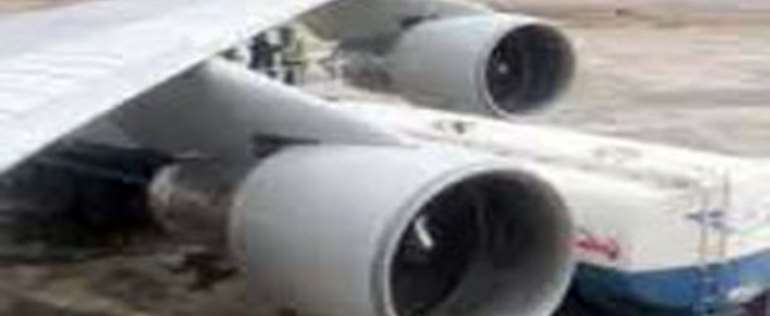Nigeria reaps from aviation fuel scarcity in Ghana

Foreign carriers have fallen back on Nigeria following the shortage of aviation fuel, otherwise known as Jet A1, in Ghana.
Most of the carriers were those from Europe and the United States (U.S.), as they now stop over to refuel in the country despite its huge cost.
Although the Ghanaian government is trying to offer explanation for the shortage of aviation fuel in the country, airlines have had to depend on supplies from Togo, Cote d'Ivoire and Nigeria, according to a Ghana web report. According to the report, the situation has taken a heavy toll on some domestic travellers in Ghana whose flights have been cancelled.
This is because domestic airlines have had to surcharge GH¢15 on each ticket in order to make up for extra costs incurred from the shortage crisis.
Currently, the product is transported into the country by road from Togo, Cote d'Ivoire and Nigeria, the Ghana web reported.
Nigerian aviation experts said the situation usually occurred from time to time, adding that Nigerian airlines had also depended on Ghana in the past whenever there was shortage in the country.
Aviation expert and Managing Director, Belujane Konzult, Mr. Chris Aligbe, said the current development would benefit Nigerian oil marketers only, noting that the situation would ease out in 'few days'
The development is however biting hard on domestic travellers in Ghana.
Some travellers, who arrived in Ghana from the sub-region, realised that their luggage had been left behind when they got to the Kotoka International Airport, according to Ghana web.
Instead of packing the luggage onto the aircraft, the airlines decided to fill the aircraft's fuel tank above the required limit in order to ward off a shortage.
In the process, luggage are transported later in the day delaying the passengers at the airport by close to five hours.
A Ghanaian aviation analyst has condemned the situation, saying it could push airline operators to short-change passengers.
He added that operators could adopt common pricing under the current circumstances. According to him, competition is key in the industry.
As a result of the situation, many international airlines operating in Ghana have had to make alternative arrangements to lift fuel from neighbouring countries.
